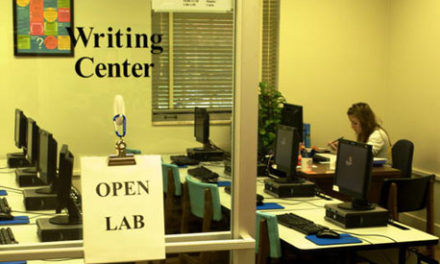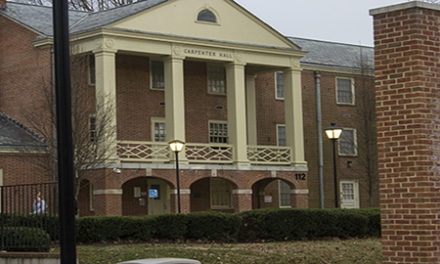By Evan Le’Mon, The Whetstone  Â
Freshman Biological Chemistry major Rex Chege was only able to buy three out of the five textbooks he needed for this semester.
“I had to spend all my money that would’ve went to my refund check on my books,†he said. “It would’ve been nice to have that money, but sometimes you have to make sacrifices for school.â€
Chege isn’t the only one who’s had to make such a sacrifice. Several students have bemoaned the bookstore for the prices of its textbooks.
Sophomore Evan Otero said he avoids the bookstore altogether.
“Typically, Wesley has the books that I need, but I can get them cheaper somewhere else,†he said. “I usually check Chegg.com before I even go to the bookstore.â€
According to CollegeCalc, the yearly estimated books and supplies budget for Wesley is $2,000. That’s well above The College Board’s $1,200 average yearly textbook budget for undergraduate students. The College Board also has the average textbook price at $82 for new books and $59 for used books.
According to the U.S. Public Interest Group, the reason prices are so high is because five publishers have a hold on the market. These publishers are constantly releasing new editions of textbooks to keep the costs up, even when an update isn’t necessary. Since professors assign the textbooks, students have no choice but to pay up.
Bookstore manager Kris McGlothlin agrees that the prices of textbooks are high.
“There is a legitimate need for lowering prices,†he said.
To that end, the bookstore enacted a new policy at the start of this semester. They will match the price of any textbook if a student finds it for a better price on Amazon or at a nearby off-campus competitor (of which Wesley has none). The only caveat is that the book must be sold by Amazon’s warehouse and not a third party on the website.
McGlothlin said that the policy is part of an initiative to make textbooks more affordable.
“We’re technically a branch-off of Barnes and Noble, and this is a nationwide program that they’re doing,†he said. “We’re working every day to bring the prices down to something more reasonable for the students – price matching is the next step in that.â€
McGlothlin said digital textbooks are also a convenient alternative, as they cut the costs for shipping and handling and put the book in the students’ hand immediately. However, he said that Wesley hasn’t quite caught up to this technology yet.
“We have a few departments using digital books, but they’ll still come back and get a hard copy,†he said. “They’re just not comfortable with it yet.â€
McGlothlin said that student demand will force Wesley to catch up sooner than later.
“A lot of that is a student-driven thing,†he said. “I think the next generation of students who are using iPads and stuff in class every day are going to come in and push that forward.â€
In the meantime, McGlothlin said the price-matching tool has been effective.
“It’s brought a lot more people back into the store,†he said.
However, not all Wesley students are aware of the new policy.
“I didn’t realize you could do that until after I’d already bought my books,†Chege said. “If I’d known, I probably would have been able to get all five of them.â€
Chege said that Wesley should send a mass e-mail to all students about the new policy.
“That’s probably one of the quickest ways for people to see it,†he said.
Otero, who was also unaware until recently of the new policy, wasn’t so sure.
“I know a lot of people don’t check their e-mail like they should, especially the freshman,†he said. “Plus the amount of e-mails you get from Wesley on a daily basis can be overwhelming.â€
Otero suggests that informational flyers be distributed around campus.
“The more places the flyer comes up in places like the dorms, the more likely it is you’ll remember when it’s time to order books,†he said. “I feel like the Amazon policy is a good start for Wesley.â€




